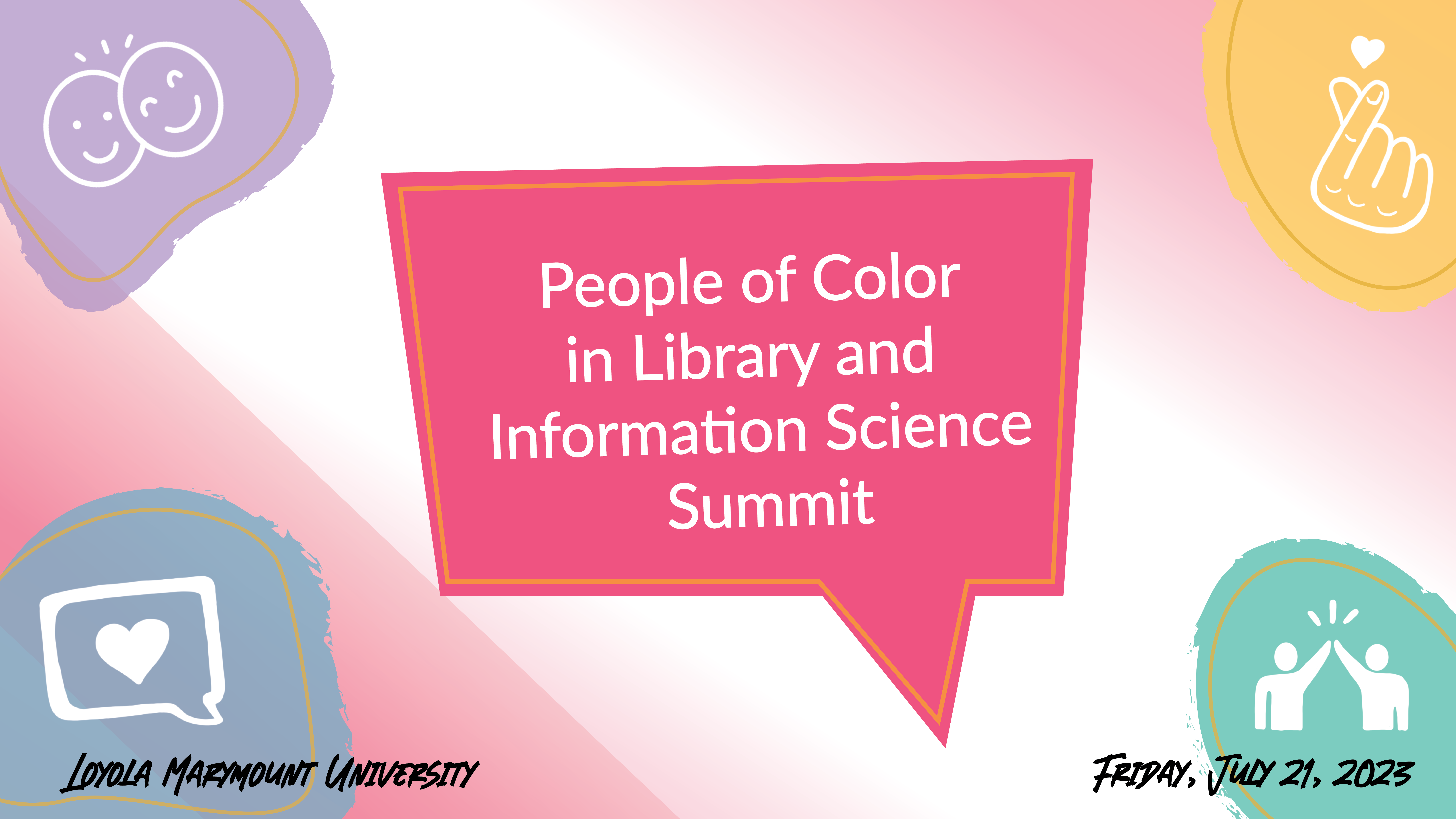Lightning Round B: POCs in LIS Education: Managing Expectations and Realities
Event Type
Lightning Talk
Location
Von der Ahe Family Suite
Track
Developing A Professional Identity
Start Date
13-7-2018 3:15 PM
End Date
13-7-2018 4:00 PM
Description
LIS education is more than what one takes away from their classroom experience. Relevant career-building skills are often learned outside of the classroom, but it falls to the student to develop their professional identity and manage career expectations. Many POC students find themselves unprepared for these unexpected challenges, despite their best efforts at preparation.
Much of the narrative around graduate school and LIS education focuses on the ideal--what you’d ideally learn in your courses, what steps you’ll ideally take when you start looking for that first job post-MLIS degree, what you’ll be doing when you land that ideal job. However, expecting the ideal can often leave new graduates unprepared for a post-graduate career that is less than ideal. For first-generation college graduates, especially those from marginalized backgrounds, it is even more difficult to manage expectations. We will address issues related to navigating the job market as a new professional, and share conclusions about the areas in which LIS programs and organizations might improve to better prepare students from have their expectations better match their realities. While our LIS education assists employers in determining our qualifications, new professionals, specifically POC, are not immune to the imposter syndrome within the information field. They are constantly having to reshape the way they present themselves professionally. So, what makes us valued as an archivist? While exploring through learned concepts as both an LIS student and an archival professional, a dialogue will be presented of experiences within the archival field to engage with the various concepts of professional development for new professionals. Topics will include how best to approach and maneuver past the imposter experience, and how new professionals can engage and find meaning to developing a professional identity.
Lightning Round B: POCs in LIS Education: Managing Expectations and Realities
Von der Ahe Family Suite
LIS education is more than what one takes away from their classroom experience. Relevant career-building skills are often learned outside of the classroom, but it falls to the student to develop their professional identity and manage career expectations. Many POC students find themselves unprepared for these unexpected challenges, despite their best efforts at preparation.
Much of the narrative around graduate school and LIS education focuses on the ideal--what you’d ideally learn in your courses, what steps you’ll ideally take when you start looking for that first job post-MLIS degree, what you’ll be doing when you land that ideal job. However, expecting the ideal can often leave new graduates unprepared for a post-graduate career that is less than ideal. For first-generation college graduates, especially those from marginalized backgrounds, it is even more difficult to manage expectations. We will address issues related to navigating the job market as a new professional, and share conclusions about the areas in which LIS programs and organizations might improve to better prepare students from have their expectations better match their realities. While our LIS education assists employers in determining our qualifications, new professionals, specifically POC, are not immune to the imposter syndrome within the information field. They are constantly having to reshape the way they present themselves professionally. So, what makes us valued as an archivist? While exploring through learned concepts as both an LIS student and an archival professional, a dialogue will be presented of experiences within the archival field to engage with the various concepts of professional development for new professionals. Topics will include how best to approach and maneuver past the imposter experience, and how new professionals can engage and find meaning to developing a professional identity.




